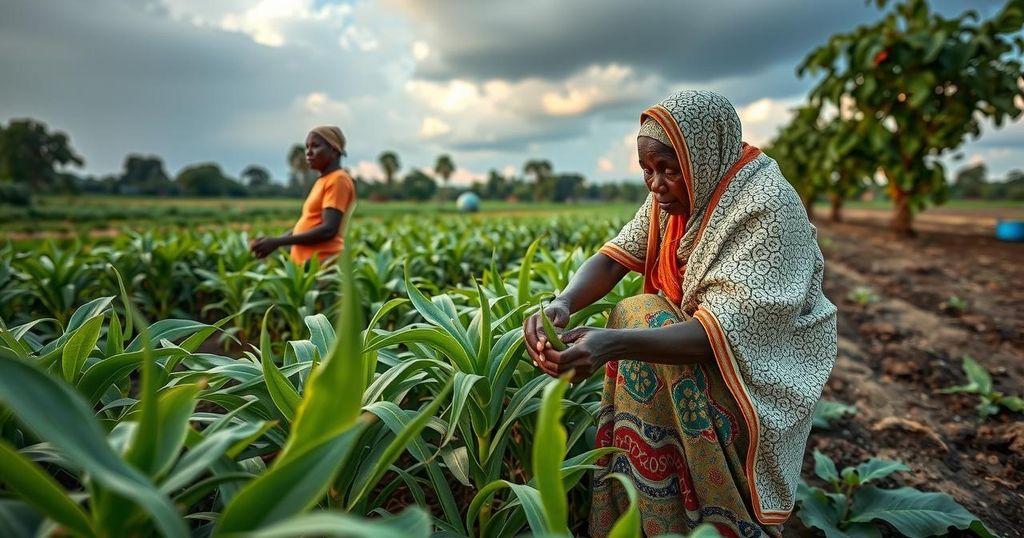Adapting to Climate Change: Supporting Refugee Farmers in South Sudan

Awad Usman, a refugee farmer in South Sudan, faces the dual challenges of climate change and food insecurity. After suffering destruction from recent floods, he receives support from UNHCR, which offers land access, resources, and training on sustainable farming. Improved practices and infrastructure have enabled him to harvest successfully, demonstrating the resilience of refugee farmers amidst climate challenges.
In Maban, South Sudan, Awad Usman, a refugee farmer, faces the growing challenges posed by climate change. Having fled from Sudan during a turbulent conflict over a decade ago, he relies on agriculture, cultivating sesame and sorghum. Each year, Awad ties a prayer to his arm, believing that renewing it at the beginning of the rainy season improves his fortunes. The recurrent floods in Maban, exacerbated by climate change, threaten the lives and livelihoods of local communities, including refugees. The region grapples with increased flooding, impacting approximately 1.4 million people, alongside significant declines in rainfall since the mid-1970s. Alex Noel Kilong from UNHCR emphasizes the compounding vulnerabilities faced by communities already enduring conflict, highlighting that floods damage livestock, infrastructural connectivity, and healthcare access. To combat these challenges, UNHCR has implemented support initiatives targeting refugee farmers like Awad. In collaboration with local partners, they have facilitated land access, financial support for seeds and tools, and educated farmers on diversifying crops for improved resilience. Additionally, the construction of dykes and bridges has safeguarded agricultural lands and facilitated connectivity to markets. This season, Awad successfully harvested his sesame before anticipated floods, a direct result of the education he received from UNHCR. The protective dykes allowed him to achieve a more successful yield despite challenging weather conditions. Awad and his family remain engaged in daily farming tasks, exemplifying their commitment to cultivating their land while navigating the unpredictable impacts of climate change. Awad’s journey highlights not only the personal resilience of refugees facing climate adversity but also the critical support systems required to foster sustainable agricultural practices under increasingly harsh conditions. Through coordinated efforts, refugees can work toward self-sufficiency and a more stable future despite the daunting challenges that lay ahead.
The situation in South Sudan presents a dire narrative shaped by both ongoing conflict and escalating environmental issues. Extreme weather events, primarily flooding and drought, are increasingly impacting the agriculture-dependent livelihoods of refugee communities and local populations. The UNHCR and associated agencies are spearheading initiatives to provide practical support to those most affected and address the factors contributing to chronic food insecurity in the region.
The story of Awad Usman and other refugee farmers in South Sudan underscores the profound impact of climate change on vulnerable populations. As flooding and environmental instability continue to threaten food security, the role of organizations such as UNHCR becomes vital in implementing sustainable agricultural practices. Through continuous support and education, refugee farmers can build resilience against climate uncertainties, paving the way for a more self-sufficient and stable future for their communities.
Original Source: www.unhcr.org






